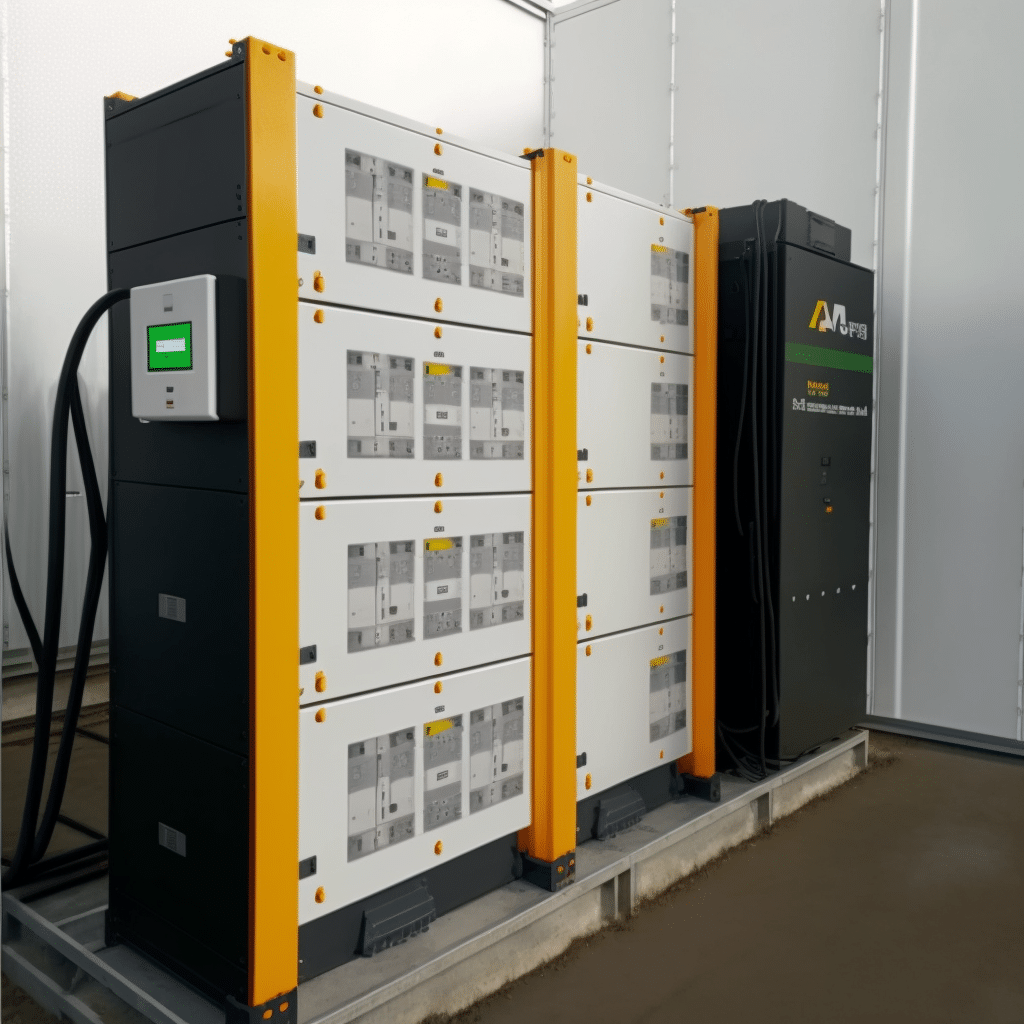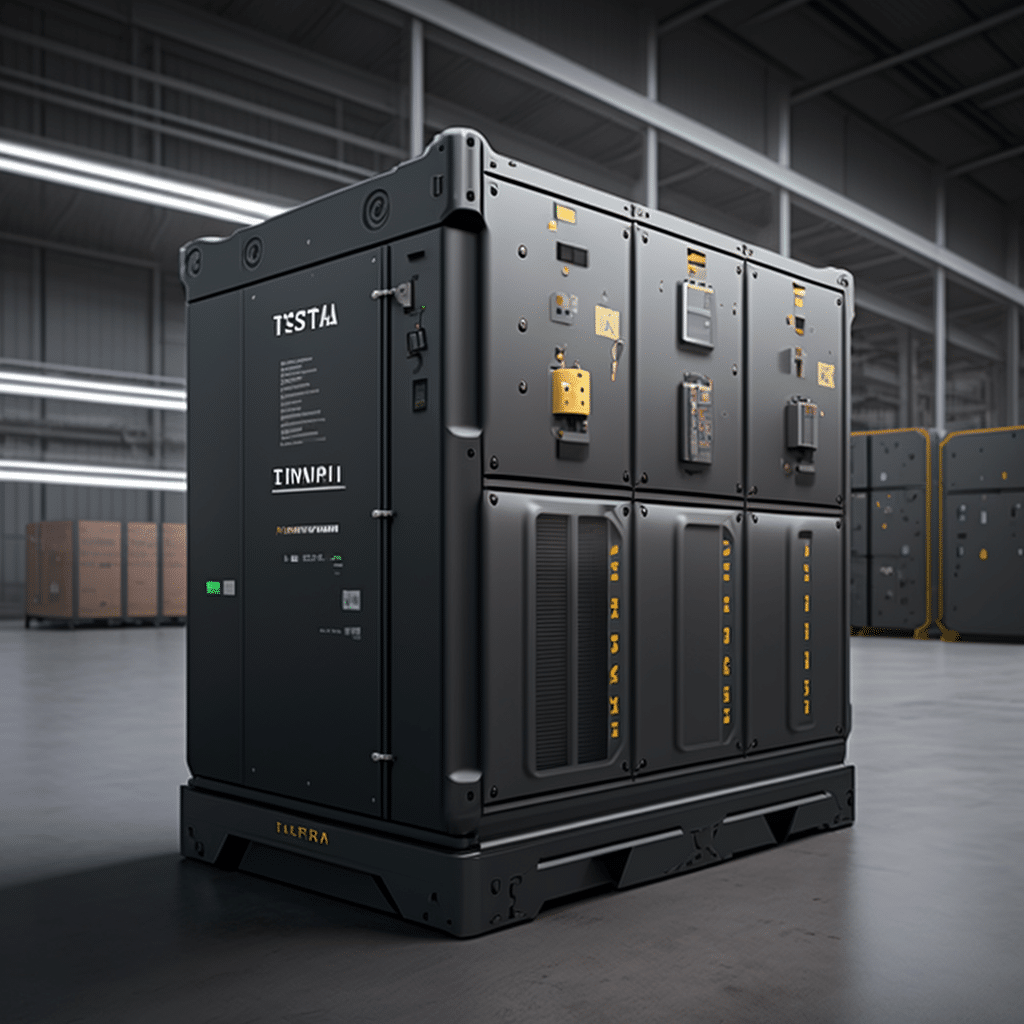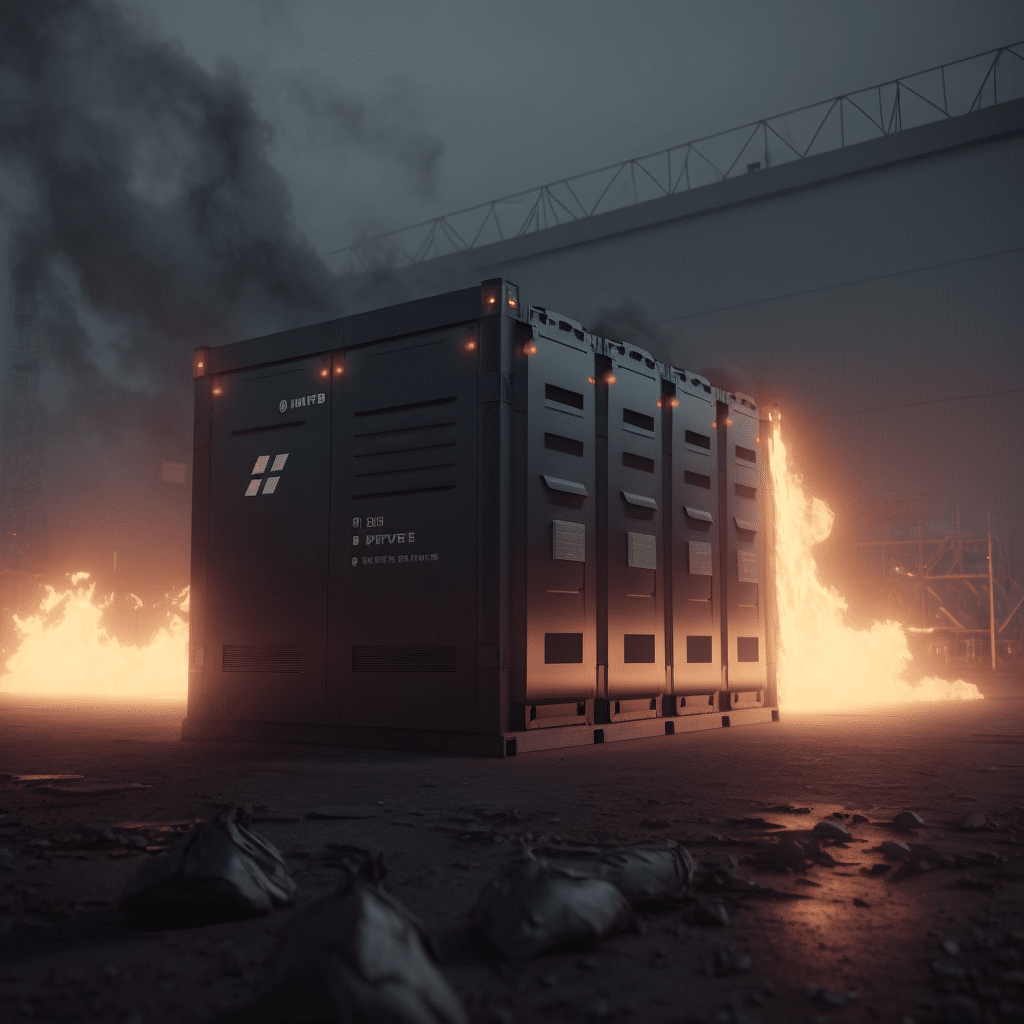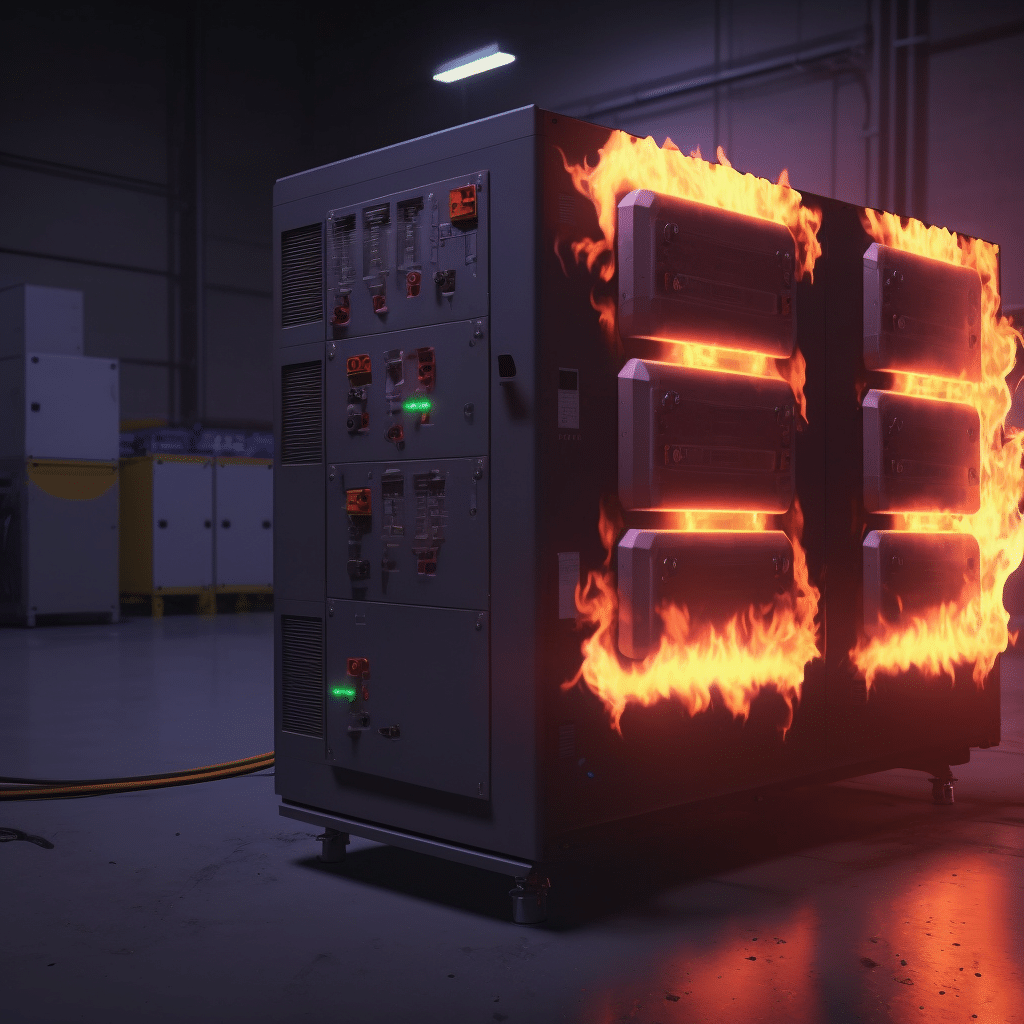I know that choosing the right type of battery is crucial when it comes to building an effective and reliable solar battery storage system. Two of the most popular types of batteries used in solar battery storage systems are lithium iron phosphate (LFP) and lithium-ion (Li-ion) batteries. While both types of batteries have their advantages and disadvantages, they have distinct differences that can affect their suitability for different applications. In this article, we’ll take a closer look at the key differences between LFP and Li-ion batteries, and examine the pros and cons of each type of battery. By the end of this article, you’ll have a better understanding of which type of battery is right for your solar battery storage system.
Table of contents:
Energy Density: How LFP and Li-ion Batteries Compare
One advantage of LFP batteries is their stability. LFP batteries are less prone to thermal runaway, which is a condition where the battery temperature rises uncontrollably, leading to potential safety hazards such as fires and explosions. This is because LFP batteries have a lower risk of producing oxygen during charging and discharging, which can contribute to thermal runaway in some types of batteries.
Additionally, LFP batteries tend to have a longer lifespan than Li-ion batteries. LFP batteries can be charged and discharged more times than Li-ion batteries before they need to be replaced. This can make them a more cost-effective choice over the long- term, particularly for applications where the battery will be used frequently.
On the other hand, Li-ion batteries have a higher energy density than LFP batteries, meaning that they can store more energy in a smaller space. This makes them a popular choice for applicationss where space is at a premium, such as in mobile devices or electric vehicles. However, the higher energy density of Li-ion batteries can also make them more prone to overheating and thermal runaway.
Overall , the choice between LFP and Li-ion batteries will depend on your specific energy storage needs and requirements. If safety and lifespan are your top priorities, LFP batteries may be the better choice. If space and weight are more important factors, Li-ion batteries may be the better choice. By considering all of these factors, you can make an informed decision and choose the battery that is best suited for your solar battery storage system.
Lifespan: Which Battery Lasts Longer?
I know that the lifespan of a battery is one of the most important factors to consider when choosing a batttery for your solar battery storage system. A battery’s lifespan is determined by how many times it can be charged and discharged before it begins to lose its capacity to hold a charge.
LFP batteries are known for having a longer lifespan than Li-ion batteries. LFP batteries can typically be charged and discharged more times than Li-ion batteries before they begin to lose their capacity to hold a charge. This means that LFP batteries may be a better choice for applications where the battery will be used frequently, such as in a solar battery storage system.
Li-ion batteries, on the other hand, tend to have a shorter lifespan than LFP batteries. Li-ion batteries can typically be charged and discharged fewer times than LFP batteries before they begin to lose their capacity to hold a charge. This means that Li-ion batteries may be a better choice for applications where the battery will be used infrequentlly, such as in a backup power system.
It’s worth noting that the lifespan of a battery can also be affected by factors such as temperature, depth of discharge, and charging and discharging rate. By taking steps to optimize the performanc and lifespan of your battery, such as keeping it at a moderate temperature and avoiding deep discharges, you can help ensure that your solar battery storage system provides reliable and long-lasting energy storage.
LFP batteries are known for having a higher cycle life than Li-ion batteries. This means that LFP batteries can be charged and discharged more times than Li-ion batteries before they begin to lose their capacity to hold a charge. For example, a typical LFP battery may have a cycle life of around 4,000 cycles, while a typical Li-ion battery may have a cycle life of around 1,000 cycles.
The higher cycle life of LFP batteries makes them a good choice for applications where the battery will be used frequently, such as in a solar battery storage system. LFP batteries can provide reliable and long-lasting energy storage, even with frequent charging and discharging cycles.
Li-ion batteries, on the other hand, tend to have a lower cycle life than LFP batteries. This means that Li-ion batteries can be charged and discharged fewer times than LFP batteries before they begin to lose their capacity to hold a charge. While Li-ion batteries may not be as well-suited for frequent cycling applications, they can stilll provide reliable energy storage for applications where the battery will be used infrequently.
Safety: Comparing LFP and Li-ion Battery Safety Features
Both lithium iron phosphate (LFP) and lithium-ion (Li-ion) batteries have safety features designed to prevent issues such as overheating, thermal runaway, and fires!!! In this article, we’ll take a closer look at the safety features of LFP and Li-ion batteries, and compare their safety performance.
LFP batteries are known for having a strong safety profile. LFP batteries are less prone to overheating and thermal runaway than Li ion batteries, due to their lower risk of producing oxygen during charging and discharging. Additionally, LFP batteries are less sensitive to temperature changes and have a lower risk of spontaneous combustion. This makes LFP bateries a safer choice for residential solar battery storage systems, where safety is a top priority.
Li-ion batteries, on the other hand, have a more complex safety profile. While Li-ion batteries have some safety features designed to prevent issues such as overheating and thermal runaway, they are also more prone to these types of issues than LFP batteries. This is due to the higher energy density of Li-ion batteries, which can make them more susceptible to issues such as puncture, overcharging, and short-circuiting.
Despite the higher risk of safety issues, Li-ion batteries have come a long way in terms of safety features in recent years. Many Li-ion battery manufacturers have developed new safety features such as thermal management systems, pressure relief vents, and sophisticated battery management systems (BMS ).
Case Study: Examining a Li-ion Battery Fire
One issue that has received a lot of attention in recent years is the risk of lithium-ion (Li-ion) battery fires. In this article, we’ll take a closer look at a case study of a Li-ion battery fire, and examine the causes and implications of the incident.
In 2018, a massive fire broke out at a grid-scale energy storage facility in Arizona. The cause of the fire was determined to be a thermal runaway event in one of the facility’s Li-ion batteries. The fire burned for over eight hours, causing extensive damage and releasing toxic fumes into the surrounding area.
The incident highlights the importance of battery safety in energy storage systems. While Li-ion batteries are known for their high energy density and efficiency, they are also more prone to overheating and thermal runaway than other types of batteries. In order to prevent incidents such as the one in Arizona, it’s critical to design energy storage systems with robust safety features and to carefully monitor and maintain the batteries over their lifespan.
Following the incident in Arizona, Li-ion battery manufacturers and energy storage system designers have taken steps to improve the safety of Li-ion batteries!!! New safety features such as thermal management systems and pressure relief vents can help to prevent issues such as overheating and thermal runaway. Additionally, advances in battery monitoring and management technology can help to detect issues before they become serious safety hazards.
Choosing the Right Battery for Your Solar Battery Storage System
Selecting the right battery for your solar battery storage system can be a daunting task. With so many factors to consider, it’ s easy to feel overwhelmed and unsure of which battery will provide the best performance, safety, and value for your specific needs. But fear not! In this article, we ll break down the key factors you need to consider when selecting a battery for your solar battery storage system, and offer some tips for making an informed decision.
Here are some general guidelines for which battery type may be best suited for different types of solar battery storage systems:
Residential solar battery storage systems: For a typical residential solar battery storage system, a lithium-ion (Li-ion ) battery may be a good choice due to its high energy density and ability to provide reliable energy storage for intermittent solar power. Li-ion batteries also tend to have a lower upfront cost than other battery types, making them a more cost-effective option for residential applications.
Off-grid solar battery storage systems: For off-grid solar batery storage systems, a battery with a longer lifespan and robust safety features may be more appropriate. Lithium iron phosphate (LFP) batteries are a good choice for off-grid systems, as they are known for their longer lifespan and strong safety profile.
Commercial solar battery storage systems: For commercial solar battery storage systems, a battery with a higher energy density may be a better choice, as commercial systems tend to require more energy storage capacity. Li-ion batteries are often used for commercial solar battery storage systems, as they can provide reliable energy storage for large-scale solar power systems.
Industrial solar battery storage systems: For industrial solar battery storage systems, a battery with a high cycle life and robust safety features may be most appropriate. LFP batteries are often used in industrial appllications, as they are known for their high cycle life and durability.
Ultimately, the best battery for your solar battery storage system will depend on a variety of factors, including your specific energy storage needs, safety requirements, and budget. It’s important to consult with a qualified energy storage expert to determine the best battery type and configuration for your system.




